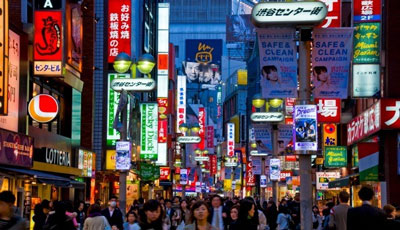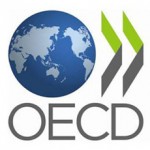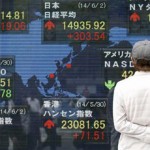Japan upgrades economic outlook

Japan upgraded its overall assessment of the economy in July for the first time in six months as consumers reopened their wallets following an initial pullback in spending in the wake of a sales tax increase.
In its monthly economic report released Thursday, the government said the economy was recovering moderately and that a drop in consumption in response to the tax increase in April “is easing.”
That’s good news for Prime Minister Shinzo Abe as his administration tries to power through the speed bump of the higher tax and keep a hard-won recovery on track. Evidence that the tax increase is not having such a detrimental effect on the economy as feared will also help Mr Abe as he looks to make a decision later this year on raising the tax again to help improve the nation’s battered finances.
The latest assessment wasn’t entirely positive, though, as the government lowered its view on capital expenditure amid lingering resistance among firms to spend money before the future path of the economy becomes clearer.
The government had stood pat on its overall assessment of the economy since its April report, when it downgraded its view on the economy for the first time since November 2012, as consumers cut back sharply on spending after the tax was raised to 8 per cent from 5 per cent.
But in the latest report, the government upgraded its view on private consumption, saying it was showing “movements of picking up,” although some weakness still remained. “It appears the mindset of consumers is recovering,” it said.
A Cabinet Office official briefing reporters said weakness in purchases of automobiles appeared to be bottoming out while sales of some domestic appliances, as well as everyday commodities at department stores, supermarkets and convenience stores, appeared to be recovering.
In revising down its language on capital investment, the government said corporate spending had shown “some weak movements recently.”
Japanese machinery orders posted a surprisingly sharp fall in May, suggesting companies are taking a more cautious stance toward capital spending than was previously believed after the consumption tax increase kicked in.
Core machinery orders, excluding volatile orders from electric power companies and for ships, fell almost 20 per cent from a month earlier, the government said last week. It was the sharpest drop in orders since the data was compiled in its current format in April 2005 and came despite market expectations of a slight increase.
Economists and policy makers are closely tracking how the economy is responding to the higher tax rate, following a surge in spending ahead of its implementation. The last tax increase in 1997 was widely blamed for triggering a deep recession, and many have been worried that the recent increase could derail the economic recovery engineered by Mr Abe and the Bank of Japan.
Thursday’s report suggests the impact of the higher tax is gradually waning. That also fits in with the BOJ’s view that the higher rate will only drag on the economy in the short-term.
On Tuesday, BOJ Gov. Haruhiko Kuroda remained upbeat about Japan’s overall growth outlook, despite the bank’s trimming of its growth forecast for the current fiscal year to 1.0 per cent from 1.1 per cent.
“Our assessment is that the impact of a pullback in demand is going to fade gradually, letting the economy continue to grow at a moderate pace,” he said.
The government plans to raise the sales tax again to 10 per cent in October 2015, with Mr Abe expected to give a final go-ahead later this year, provided he judges the economy to be sufficiently robust.
Source: theaustralian





























